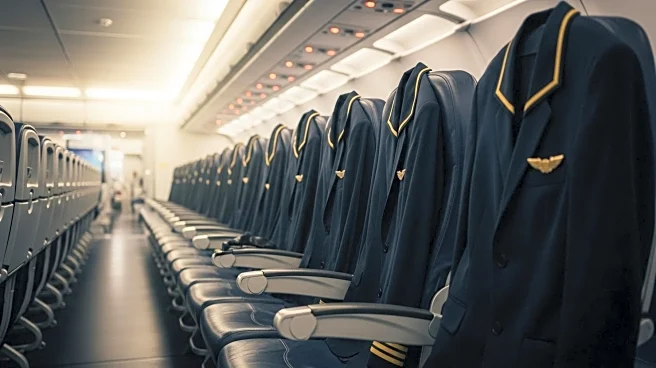What's Happening?
Spirit Airlines, based in Fort Lauderdale, has announced plans to furlough 1,800 flight attendants by the end of the year. This decision comes as the airline industry continues to grapple with the financial impacts of the COVID-19 pandemic. The furloughs are part of broader cost-cutting measures as the company seeks to stabilize its operations amid fluctuating travel demand. The announcement was made at the Fort Lauderdale-Hollywood International Airport, highlighting the local impact of the airline's decision.
Why It's Important?
The furlough of 1,800 flight attendants by Spirit Airlines is a significant development in the airline industry, which has been severely affected by the pandemic. This move reflects the ongoing challenges faced by airlines in managing operational costs while dealing with reduced passenger numbers. The decision will have direct implications for the affected employees and their families, as well as potential service disruptions for customers. It also underscores the broader economic challenges within the travel and tourism sector, which is a critical component of the U.S. economy.
What's Next?
Spirit Airlines will likely continue to evaluate its financial position and operational strategies in response to changing market conditions. The furloughs may lead to negotiations with labor unions and discussions about potential reemployment or severance packages for affected workers. Customers may experience changes in service levels, prompting the airline to address customer service and satisfaction issues. The broader airline industry will be watching closely, as similar cost-cutting measures may be considered by other carriers facing similar financial pressures.
Beyond the Headlines
The decision by Spirit Airlines to furlough a significant portion of its workforce raises questions about the long-term sustainability of low-cost carriers in a post-pandemic world. It may also prompt discussions about the role of government support and intervention in stabilizing the airline industry. The impact on local economies, particularly in areas heavily reliant on tourism and travel, could lead to broader economic and social consequences.










